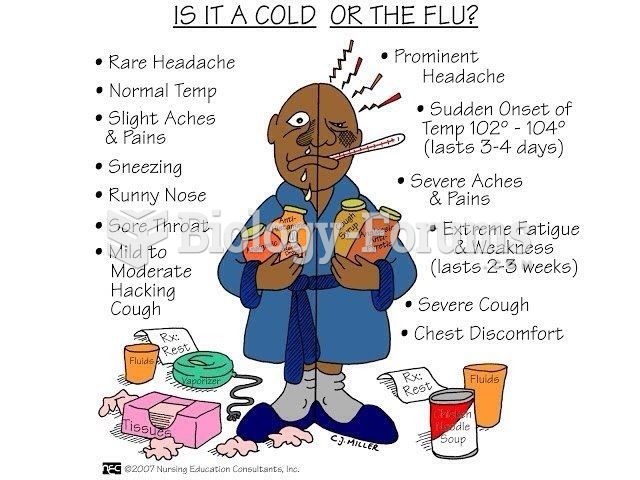|
|
|
Hippocrates noted that blood separates into four differently colored liquids when removed from the body and examined: a pure red liquid mixed with white liquid material with a yellow-colored froth at the top and a black substance that settles underneath; he named these the four humors (for blood, phlegm, yellow bile, and black bile).
As the western states of America were settled, pioneers often had to drink rancid water from ponds and other sources. This often resulted in chronic diarrhea, causing many cases of dehydration and death that could have been avoided if clean water had been available.
In 1885, the Lloyd Manufacturing Company of Albany, New York, promoted and sold "Cocaine Toothache Drops" at 15 cents per bottle! In 1914, the Harrison Narcotic Act brought the sale and distribution of this drug under federal control.
Vampire bats have a natural anticoagulant in their saliva that permits continuous bleeding after they painlessly open a wound with their incisors. This capillary blood does not cause any significant blood loss to their victims.
According to the FDA, adverse drug events harmed or killed approximately 1,200,000 people in the United States in the year 2015.
 The four ways in which animals exchange heat with the environment are radiation, evaporation, convec
The four ways in which animals exchange heat with the environment are radiation, evaporation, convec
 Check heat source for temperature. Evaluate the amount of heat given off from the source using your ...
Check heat source for temperature. Evaluate the amount of heat given off from the source using your ...




